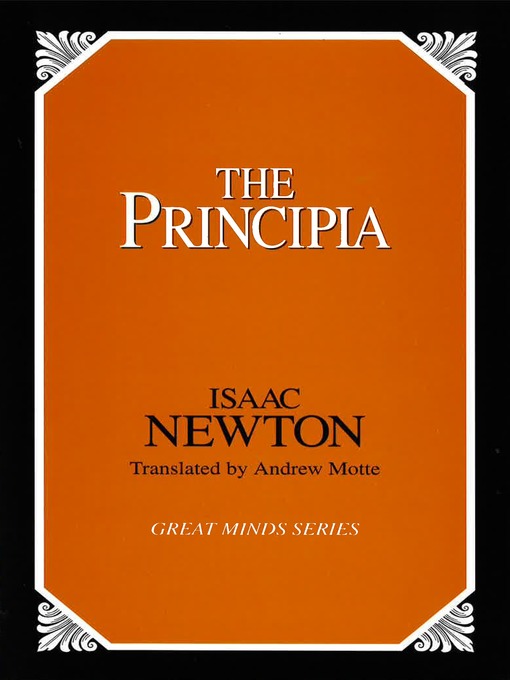-
Description
-
Details
Newton's brilliant and revolutionary contributions to science explained the workings of a large part of inanimate nature mathematically and suggested that the remainder might be understood in a similar fashion. By taking known facts, forming a theory that explained them in mathematical terms, deducing consequences from the theory, and comparing the results with observed and experimental facts, Newton united, for the first time, the explication of physical phenomena with the means of prediction. By beginning with the physical axioms of the laws of motion and gravitation, he converted physics from a mere science of explanation into a general mathematical system.
From the Trade Paperback edition.

Kindle Book
- Release date: December 29, 2010
OverDrive Read
- ISBN: 9781616141141
- File size: 12621 KB
- Release date: December 29, 2010
EPUB ebook
- ISBN: 9781616141141
- File size: 12621 KB
- Release date: December 29, 2010
Formats
Kindle Book
OverDrive Read
EPUB ebook
subjects
Languages
English
Newton's brilliant and revolutionary contributions to science explained the workings of a large part of inanimate nature mathematically and suggested that the remainder might be understood in a similar fashion. By taking known facts, forming a theory that explained them in mathematical terms, deducing consequences from the theory, and comparing the results with observed and experimental facts, Newton united, for the first time, the explication of physical phenomena with the means of prediction. By beginning with the physical axioms of the laws of motion and gravitation, he converted physics from a mere science of explanation into a general mathematical system.
From the Trade Paperback edition.

-
Details
Publisher:
Prometheus Books
Kindle Book
Release date: December 29, 2010
OverDrive Read
ISBN: 9781616141141
File size: 12621 KB
Release date: December 29, 2010
EPUB ebook
ISBN: 9781616141141
File size: 12621 KB
Release date: December 29, 2010
-
Creators
- Sir Isaac Newton - Author
-
Formats
Kindle Book
OverDrive Read
EPUB ebook
-
Languages
English
Why is availability limited?
×Availability can change throughout the month based on the library's budget. You can still place a hold on the title, and your hold will be automatically filled as soon as the title is available again.
The Kindle Book format for this title is not supported on:
×Read-along ebook
×The OverDrive Read format of this ebook has professional narration that plays while you read in your browser. Learn more here.
